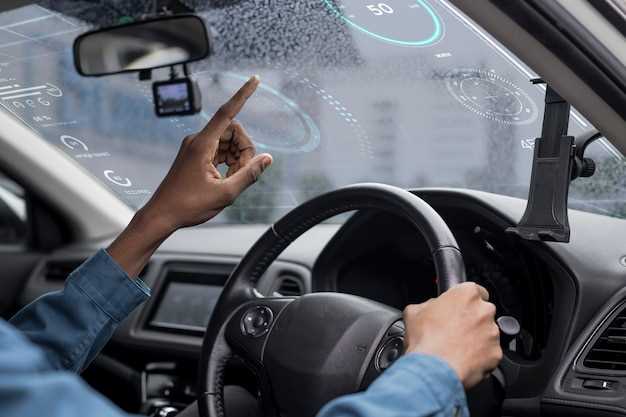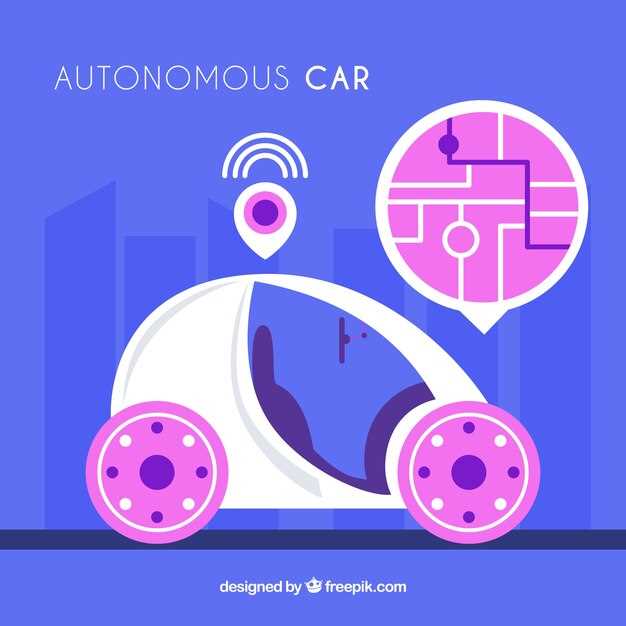How AI is changing car buying in 2025


As we approach 2025, the automotive industry is undergoing a profound transformation driven by AI innovations. These advancements are not only redefining the way consumers interact with dealerships, but they are also reshaping their entire car buying experience. The integration of sophisticated technology into every aspect of the purchasing process is enabling a more personalized and efficient journey for potential buyers.
In this new era, tech plays a pivotal role in understanding consumer behavior and preferences. AI algorithms analyze vast amounts of data to predict which features and models will resonate with specific demographics. As a result, dealerships are becoming increasingly adept at tailoring their offerings, thereby enhancing customer satisfaction and boosting sales.
The future of car buying is not only about the vehicles themselves but also about the streamlined processes that AI facilitates. From virtual showrooms powered by augmented reality to chatbots providing instant assistance, the automotive landscape is on the brink of a revolutionary change that promises to make purchasing a car more accessible and enjoyable than ever before.
Personalized AI-Powered Recommendations for Car Buyers
In 2025, personalized AI-powered recommendations will revolutionize the car buying experience, leveraging advanced tools and tech to cater to individual preferences. By analyzing vast amounts of data, AI systems can create tailored suggestions that align with buyers’ needs and lifestyles. This personalization goes beyond simple metrics; it considers factors such as driving habits, budget, and even emotional resonances with specific brands.
AI algorithms will assess user-inputted preferences alongside historical data to provide real-time recommendations. For instance, if a buyer frequently travels long distances, AI tools may prioritize fuel-efficient or electric vehicles, enhancing overall satisfaction and suitability. By integrating machine learning capabilities, these systems continuously improve their suggestions, adapting to evolving consumer trends and preferences in the automotive market.
Furthermore, advanced tech solutions will enable augmented reality features, allowing buyers to visualize recommended vehicles in real-time environments. This immersive approach not only aids decision-making but also enhances user engagement, making the car buying process more interactive and enjoyable. As AI becomes more sophisticated, it will also help dealerships streamline inventory management by predicting which models will resonate with certain demographics based on previous buying patterns.
Ultimately, AI-powered recommendations will transform car buying into a data-driven process, empowering consumers with insights that lead to informed choices and greater satisfaction. In a rapidly evolving market, the fusion of technology and personalized service will set a new standard for how cars are bought and sold, fostering deeper connections between consumers and brands.
Smart Dealership Technologies Enhancing Customer Experience

In 2025, the automotive industry is witnessing a transformative shift with the integration of smart dealership technologies. These innovations are not merely enhancing operational efficiency but are fundamentally reshaping the customer experience. By leveraging AI tools, dealerships are able to provide personalized service that meets the unique needs of each consumer.
One of the key advancements is the implementation of AI-driven chatbots. These tools facilitate real-time communication, allowing potential buyers to inquire about vehicle specifications, pricing, and availability at their convenience. The instantaneous support offered by these chatbots fosters a sense of accessibility and responsiveness, significantly improving customer satisfaction.
Another notable innovation is the utilization of advanced analytics. Dealerships are now harnessing data to understand customer preferences and buying behaviors. Predictive analytics allows them to tailor offers and recommendations, ensuring that clients receive relevant options that align with their desires. This level of personalization not only enhances the shopping experience but also builds a stronger emotional connection between the customer and the dealership.
Additionally, virtual reality (VR) and augmented reality (AR) technologies are becoming pivotal in redefining test drives and vehicle showcases. Prospective buyers can experience cars in a virtual environment, exploring features and customizing options without the need for physical inventory. This immersive experience captivates customers, making the buying process more engaging and informative.
Furthermore, AI-powered inventory management systems optimize stock levels based on real-time customer demand and market trends. By predicting which vehicles are likely to sell faster, dealerships can adjust their offerings proactively, thereby minimizing excess inventory and maximizing customer satisfaction.
In conclusion, the adoption of smart dealership technologies is revolutionizing how consumers interact with automotive retailers. By employing advanced AI tools, dealerships are enhancing the overall customer journey, fostering loyalty, and establishing a competitive edge in the evolving marketplace.
Impact of AI on Vehicle Pricing and Financing Solutions

Artificial Intelligence (AI) is revolutionizing the automotive industry, particularly in the areas of vehicle pricing and financing solutions. Dealerships are increasingly adopting AI tools to optimize pricing strategies, ensuring they remain competitive while maximizing profitability.
Dynamic pricing algorithms powered by AI analyze vast amounts of data, including market trends, inventory levels, and customer behavior. This allows dealerships to adjust prices in real-time, ensuring that they are aligned with market demand. For example, if a certain model gains popularity, the AI system can recommend a price increase to capitalize on the demand. Conversely, if inventory remains stagnant, the system can suggest promotional pricing to stimulate sales.
Moreover, AI enhances financing solutions through personalized loan options and credit assessments. Traditional financing processes often rely on limited data points, potentially leading to unfair terms for buyers. AI tools can evaluate a wider range of financial variables and customer histories, enabling dealerships to offer more tailored financing plans that suit individual customers’ needs. This not only improves customer satisfaction but also increases the likelihood of successful loan approvals.
In addition, AI-driven insights assist dealerships in determining the best financing partners. By analyzing the performance of various lenders, AI tools can suggest the optimal financing options that provide both competitive rates and favorable terms for buyers. This helps streamline the purchasing process, making it easier for customers to navigate their options.
As AI continues to evolve, its impact on vehicle pricing and financing will only grow stronger. Dealerships that leverage these advanced tools will not only enhance their operational efficiency but also provide a more satisfying and personalized buying experience for their customers.



